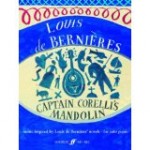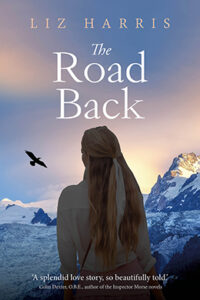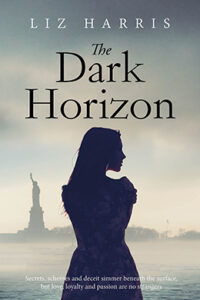Spoiler alert!! If you’re going to see Filumena at the Almeida, don’t read the following!
Those who follow me on twitter will know that I went to see Filumena last Saturday. This was a light, entertaining play by Eduardo De Filippo.
In Naples, 1940s, Filumena, a former whore, has succeeded in persuading the man she’s lived with for many years, Domenico, a former client, to marry her – she’d convinced him that she was about to die. The moment that the priest pronounced them man and wife, she sprang back into life.
Domenico, who’d planned to instal a new, younger model after Filumena’s anticipated death, was horrified to realise that she was very much alive. He discovers, however, that he can have the marriage annulled because of the lie, and he tells her that he’ll do so.
She confesses to him that she has three adult sons, whom she’d secretly supported throughout their lives, and that she’d wanted to marry him in order to give them his name, but she accepts the annulment.
Before she leaves, she tells him that one of the sons is his, but she won’t say which one. For ten months he tries to find out which is his son, but fails. Finally, she gets him to understand that she won’t identify his son because she wants him to treat them all equally, and then, when all three men address him as ‘Dad’, he relents and marries her.
That’s the end.
The ending was disappointing. I felt that something was missing. I suspected that none of the men was Domenico’s son, but there was no suggestion by word or action – not even by an Anne Robinson style wink to the audience – that this was so.
In addition, just before the second wedding to Domenico, Filumena kept asking him for a drink of water. I assumed that we were about to learn that over the months, she’d become genuinely ill. It would have been an ironic touch. However, this idea wasn’t developed.
The ending could have been so much better- instead it felt quite flat.
Over a drink in the foyer bar afterwards, we got talking about book endings that we’d found disappointing.
I had no problem in coming up with an ending that I felt was a real let-down – the end of Captain Corelli’s Mandolin, by Louis de Bernières. Towards the end of the novel, Louis de Bernières makes Captain Corelli do something that is completely out of character, and this, in my opinion, ruins the end of a book that I’d absolutely loved until that point.
What about you? Can you come up with any books that ended in a really disappointing way?





At this very moment, I can’t think of a book that left me dissatisfied, although I know some have, but an ending that caught me off-guard was Jodi Picoult’s My Sister’s Keeper. The book is all about the ending. The film version changed the ending, which frustrated the author. I doubt I will ever watch the film, as I know it will leave me disappointed and feeling cheated.
Laura x
Couldn’t agree with you more about Captain Corelli’s Mandolin. Unsatisfying – and unbelievable. The ending to Atonement was very clever, but it felt like a smack in the face to me the reader.
Sarah – I haven’t read Atonement, I must confess. I saw the film and didn’t particularly enjoy it so it’s taken away the impetus to read the novel.
Laura – I thought the ending to My Sister’s Keeper was a real cop-out. I found it very disappointing, and I wished she hadn’t taken the easy way out. I’m not surprised that the film changed the ending.
Er……The Bible comes to mind. (lol)
I suppose it depends upon from whose point of view you approach the ending, John!!
When I read Lucy Dawson’s ‘His Other Lover’ I wasn’t quite prepared for the ending. It niggled me that I was actually none the wiser but on the other hand, I have to compliment the author as I think that is exactly what she intended.
Can you tell it still niggles me now!
Sue
Many thanks for your comment, Sue.
I’d be irritated, too, if I didn’t know what had happened. I want the author to make it clear to me: I don’t want to have to speculate.
I think that this was what annoyed me wih the ending of the play. I felt that there was more to say, but the playwright didn’t bother to say it.
Excellent post, Liz. I completely agree with your verdict on Captain Corelli; the ending destroyed the whole book for me and, up until that point, I loved it!
It’s a compliment to a book, in a way, that one feels so much for the characters and their story that one feels let down if the ending lacks what’s needed for a satifying resolution. If one was less involved, one wouldn’t be so bothered by a weak ending.
Don’t some authors specialise in “unhappy endings” In the world of opera, Puccini certainly did! In fact, most opera heroines seem to die tragically.
Of course, there is a difference between “unhappy” and “unsatisfactory”.
Corny (VERY) old joke: Why does every marriage end unhappily??
Because the bride never marries the best man!
*runs and hides*
I was saddened by the ending of Dr Zhivago which is one of my all time novels. I didn’t want it to end that way but it is still a fabulous novel and so poetic, a real epic of the Russian Revolution and its aftermath. I wanted more from Birdsong. This is what happens when we engage with characters to the point that they become friends.
Didn’t I read somewhere that the only REALLY unsatisfactory ending was the one that came too soon?
And think of Mimi in my all-time favourite opera, La Bohème.
I loved your joke. I hadn’t heard it before!
Many thanks for your comment, Carol. Yes, I agree about Dr. Zhivago. I’d forgotten that.
I’d agree with the comment about My Sister’s Keeper but I suspect for a different reason – I thought it was a lazy opt-out way of finishing the story. I watched the DVD, though, this week and thought the ending of that was plain sentimental.
I agree about the ending of the book – I thought it a complete cop-out. The topic was an interesting one; it’s a shame that she let her readers down (imho) by the ending. I haven’t seen the film. When it comes on TV …
Hadn’t heard John’s joke before? You’ve been buying the wrong sort of Christmas Crackers, Liz!
Mmm, Philip. I feel a tweet to John is called for!!
Hi Liz, interesting post-I love the photo of the set. I can’t remember the ending of Captain Corelli’s Mandolin as it’s such a long time since I read it! I do remember thinking that it was beautifully written and it’s on my list of books to re-read as a writer. One Day springs to mind as a novel which left me feeling disappointed. But I think this is because I like happy endings (a true romantic I am!). I couldn’t understand why there was a flashback of the main characters spending time together after the climax either. By that point I didn’t care about that info and I’d rather have seen it earlier on.
That was an interesting comment about the structure of the end of One Day, Anita. Thank you for it. I confess that I haven’t read the novel (or seen the film). Some time ago, I read a spoiler and I now know how the novel ends. It’s rather put me off reading the book. Such a shame that. Maybe I’ll get to it one day, though.
What an interesting post, yes, Captain Corelli’s Mandolin was very disappointing at the end, although to be honest I found the whole story rather irritating … too many fancy words. I love fancy words but I felt he was just showing off with too many of them. Atonement was strange and I think I did feel a little cheated at the end. I loved Birdsong throughout and found the ending perfect.
I recently read A Fair Maiden by Joyce Carol Oates and it was a fantastic read but the ending was unsatisfying – I wanted resolution and there wasn’t one really. Still a good read though 🙂
One of the great things about having a blog is finding the titles of new novels to read. At present, I’m reading ‘The Wonder House’, recommended by Carol, who commented on my blog a few weeks ago. I’m loving it.
I haven’t read any Joyce Carol Oates, and must do so. She’s an author I’ve often meant to try but not yet got round to it.
I, too, loved Birdsong – the whole of the novel – but felt very let down when I read Charlotte Grey immediately afterwards; I thought it silly and shallow.
Many thanks for your comment, Louise.
Another one to add to the list! Late last night/ early today I finished Steig Larsson’s Girl with the Dragon Tattoo – and wasn’t impressed with the ending. Not really from a plot point of view (everything was nicely tied off) but from the pacing. Blomkvist solves the murder mystery maybe 20 pages or more before the end and although there are bits to tidy up, they drag on too long. By the time I reached the last page, I’d stopped caring about the characters.
I was put off reading his books because my husband didn’t like them at all. We don’t always like the same thing, but he rather put me off. People either like or loathe his books, it seems. Maybe one day, but I’m not sure. I was also put off – but probably shouldn’t have been – by the wrangling and rowing that went on behind the scenes when he died. I know that that doesn’t affect the books, but as I hadn’t read any of them, it did affect my attitude a little. Maybe one day.
Pitching in to this discussion at a late stage, for what it’s worth… I found the structure of One Day interesting but probably wouldn’t have ploughed on with reading it if there hadn’t been so much publicity surrounding it. I enjoyed the book, but not hugely. One book I did find so annoying, right at the end, I had to put it down was Saturday by Ian McEwan. He’s a wonderful writer, but right at the end I found I didn’t care a jot about the characters because they just became too rarified. The son as I recall (it’s a long while ago) is making a success/living as a popular musician, and the daughter as a poet (almost unheard of) everybody just seemed a little smug and somewhat unreal. But that probably has more to say about me than about the characters! I read the first Steig Larsson and enjoyed it but only because I had already seen the film. I too remember it dragging on a little. But, Lisbeth is such an extraordinary character I think she overrode the odd smallcomings in the book.
Many thanks for that, Cara.
I think it was the slow pace of the Steig Larssen that my husband didn’t like, and which put me off. Having said that, The Wonder House, which I’m reading at the moment, is also slow, but it’s beautifully written and I’m completely drawn into the world of the characters.
Funny that Ian McEwan has featured twice with respect to endings.
OOoops, that should have been shortcomings, sorry! Also, that post looks a little grouchy. I actually read and enjoy far more books than I put down in a huff, honest!